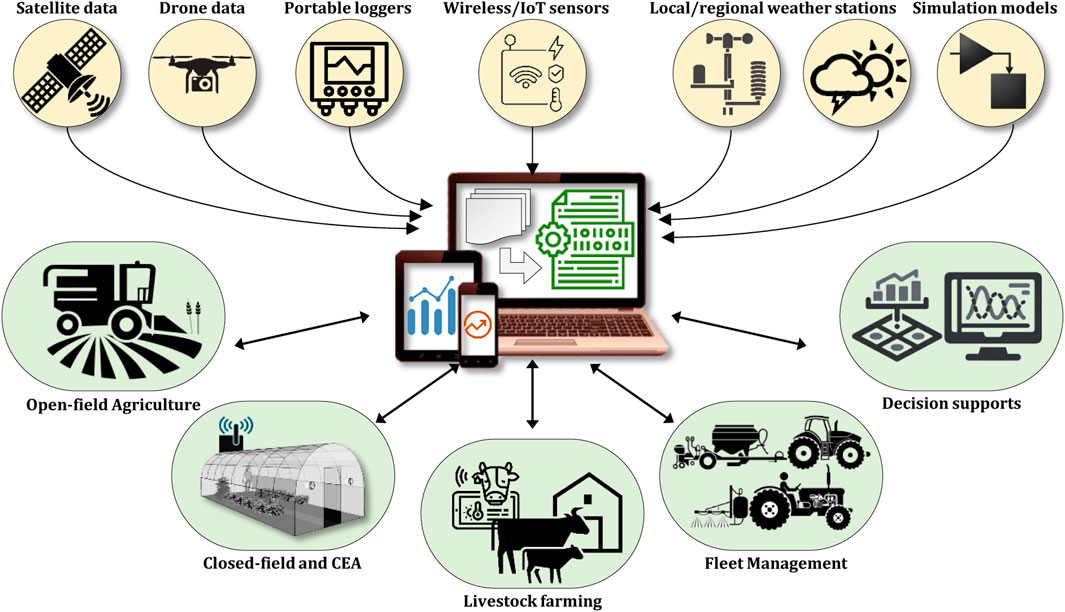
Food safety and traceability are critical issues worldwide, but they hold particular significance in Africa, where agriculture forms the backbone of many economies. In recent years, technological advancements such as blockchain and the Internet of Things (IoT) have emerged as powerful tools to enhance food safety and traceability. These innovations are not only transforming global food supply chains but are also making a significant impact in Tanzania and across Africa, improving food quality standards and fostering consumer trust.
Why Food Safety and Traceability Matter
Food safety involves ensuring that the food we consume is free from harmful contaminants, while traceability tracks the journey of food products from farm to table. These processes are essential for:
- Reducing the risk of foodborne illnesses.
- Building trust with consumers and trade partners.
- Meeting international food safety standards to enable exports.
- Enhancing the reputation of African food products in global markets.
Challenges such as poor record-keeping, fragmented supply chains, and limited oversight have historically hindered food safety efforts in Africa. However, technology is changing the game.
Blockchain Technology
Blockchain, a decentralized digital ledger, is revolutionizing food traceability by providing a tamper-proof record of every step in the supply chain.
How Blockchain Works in Food Traceability
- Information about farming practices, harvest dates, and processing is recorded on the blockchain.
- This information is accessible to all stakeholders, from farmers to retailers.
- Consumers can scan QR codes on packaging to view the product’s journey.
Benefits of Blockchain in Food Safety
- Ensures that every link in the supply chain is visible.
- Identifies and isolates sources of contamination quickly.
- Reduces instances of counterfeit or mislabeled products.
Blockchain in Africa
In Tanzania, startups are integrating blockchain to trace coffee , cocoa and other agricultural exports. This not only assures buyers of product authenticity but also enables smallholder farmers to receive fair prices by directly connecting them to global markets.
Internet of Things (IoT) with Real-Time Monitoring and Efficiency
IoT involves interconnected devices that collect and share data in real time. In the context of food safety, IoT devices play a vital role in monitoring environmental conditions, transportation, and storage.
Applications of IoT in Food Safety
- Sensors track temperature and humidity during the transport of perishable goods, ensuring optimal conditions are maintained.
- IoT devices monitor soil health, irrigation, and pest activity to improve crop quality.
- Automated systems detect spoilage risks and alert operators.
IoT Adoption in Tanzania
In Tanzania, IoT solutions are being used to monitor fish storage conditions, ensuring the freshness of seafood exported to international markets. This has enhanced compliance with stringent European Union food safety regulations, opening new trade opportunities.
Combining Blockchain and IoT to get a Powerful Duo
When used together, blockchain and IoT create an end-to-end solution for food safety and traceability. IoT devices collect real-time data, while blockchain stores this information in a secure and accessible manner. This synergy enables:
- Swift identification and resolution of food safety issues.
- Reliable records that cannot be altered.
- Transparency that fosters confidence in food quality.
How These Innovations Benefit Africa
Improving Local Food Standards
In many African countries, adopting these technologies is helping to standardize food safety practices, benefiting both local consumers and exporters.
Empowering Smallholder Farmers
Small-scale farmers, who form the majority of Africa’s agricultural workforce, gain access to better markets and fair pricing through traceability systems.
Attracting Investment
As African countries demonstrate their commitment to food safety, they become more attractive to international investors and trade partners.
What are the Challenges and the Way Forward
While these technologies hold immense promise, challenges remain:
- Initial setup and training expenses can be prohibitive for small businesses.
- Limited familiarity with advanced technologies among farmers and suppliers.
- Inconsistent internet and electricity access in rural areas.
To address these challenges, governments and private sector stakeholders must collaborate to provide funding, training, and infrastructure development.
The adoption of blockchain and IoT in Tanzania and across Africa is more than a technological upgrade, it’s a transformative step toward ensuring food safety and traceability. By leveraging these innovations, countries like Tanzania are not only improving food quality standards but also positioning themselves as competitive players in global markets.
As platforms like ChakulaFasta continue to integrate cutting-edge technologies, they exemplify how Africa’s food industry can lead the way in transparency, accountability, and quality. This revolution in food safety and traceability has the potential to uplift farmers, protect consumers, and drive sustainable economic growth across the continent.



